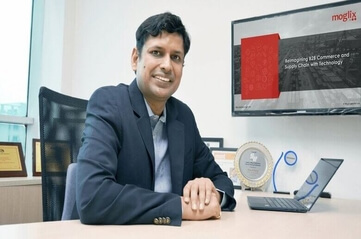Cheif Procurement Officer (CPO)
Who is the Chief Procurement Officer (CPO)?
A Chief Procurement Officer or CPO is in charge of managing the sourcing and procurement of a business. The primary job of a CPO is to ensure that the supply chain management is functioning smoothly. With the world becoming one giant tech hub, supply market risks, the pressure of compliance, automation in matters of procurement have suddenly put forth numerous challenges for b2b supply chains.
And it gave rise to the growing need for a procurement department with well-trained staff and an executive to oversee things. That executive is the CPO. There has been a rising demand to increase expenses under management and improve the visibility of the procurement division’s specialization to help in better cooperation among employees and departments.
What Are the Skills Required to Be a CPO?
From numerous surveys conducted, it has been observed that certain common skills are found and required in CPOs.
Excellent leadership skills are required to oversee the entire production process. Managing and mobilizing cross-functional teams has to be undertaken by a CPO.
CPOs are in charge of developing new products following the company’s vision and objectives. They have to answer for every new product formulated and manufactured. Thus they need to have a strategic vision for products.
A CPO must have good communication skills as they have to interact and coordinate with stakeholders, manufacturers, and customers. They need to be keenly empathetic to customer demands, grievances, and possible redressal. Due diligence is a make-or-break moment for a developing business.
A CPO has to deal with a lot of data regularly. They might be overseeing revenue and profits, churn rate and retention, product engagement, etc. Making data-driven and objective decisions is not always easy but such has to be the expertise of a CPO
What Are the Functions of a CPO?
The CPO holds an executive position and has to oversee numerous product-related activities as a strategic leader. Usually, a CPO is responsible for the administration as well as supervision of the company’s acquisition programs. They may be in charge of the contracting services and manage supply purchases, equipment, and materials. It is often their pre-defined responsibility to source goods and services and to negotiate for prices and contracts.
Some important functions of a CPO are to oversee product strategy, cultivate creative product designs, research on behavioral patterns and purchase tendencies of end-users, forecast the growth of a product in upcoming markets, advertising and marketability, making product analytics and metrics. It is also the CPO’s responsibility at times to interview, recruit, train and supervise employees in the production department. The CPO has immense responsibilities across the product cycle, from the idea of a new product to, right till it is realized and sold to consumers.
What Are the Other Functions of a CPO?
In a small company, the procurement officer may work alone, but often there is a team that executes the purchasing process. CPOs who work in multinational corporations have to manage a global team with widespread but varied resources. Some CPOs are in charge of finding optimum sources for supplies and services and developing good relations with suppliers.
CPO ensures that records of all vital information regarding purchases and services are preserved. They keep inventory levels up to date and take accountability for forecasting the upcoming supply needs of a business. CPO is the primary leader of the purchasing team and it is their responsibility to ensure that policies of the company regarding procurement are followed.
Industries & Impact
 My vision for Moglix is to change the face of industrial commerce: Rahul Garg
My vision for Moglix is to change the face of industrial commerce: Rahul Garg
 Now and Next in the Infrastructure Sector
Now and Next in the Infrastructure Sector
 Moglix enabled Agile MRO Procurement at Scale through Workflow Digitization of large EPC company
Moglix enabled Agile MRO Procurement at Scale through Workflow Digitization of large EPC company
